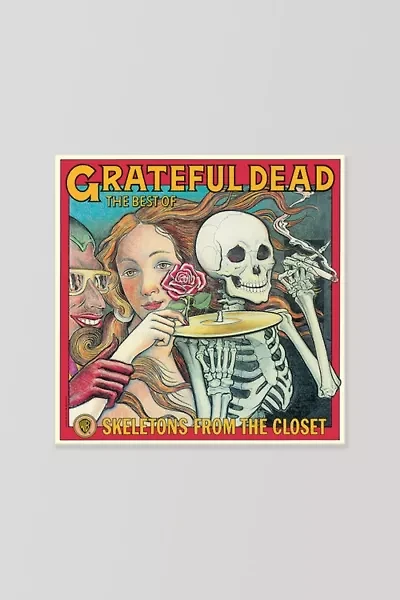Home
It Came from the Closet: Queer Reflections on Horror
Barnes and Noble
Loading Inventory...
It Came from the Closet: Queer Reflections on Horror
Current price: $41.95

Barnes and Noble
It Came from the Closet: Queer Reflections on Horror
Current price: $41.95
Loading Inventory...
Size: Audio CD
*Product information may vary - to confirm product availability, pricing, shipping and return information please contact Barnes and Noble
Through the lens of horror—from
Halloween
to
Hereditary
—queer and trans writers consider the films that deepened, amplified, and illuminated their own experiences.
Horror movies hold a complicated space in the hearts of the queer community: historically misogynist, and often homo- and transphobic, the genre has also been inadvertently feminist and open to subversive readings. Common tropes—such as the circumspect and resilient “final girl,” body possession, costumed villains, secret identities, and things that lurk in the closet—spark moments of eerie familiarity and affective connection. Still, viewers often remain tasked with reading themselves into beloved films, seeking out characters and set pieces that speak to, mirror, and parallel the unique ways queerness encounters the world.
It Came from the Closet
features twenty-five essays by writers speaking to this relationship, through connections both empowering and oppressive. From Carmen Maria Machado on
Jennifer’s Body
, Jude Ellison S. Doyle on
In My Skin
, Addie Tsai on
Dead Ringers
, and many more, these conversations convey the rich reciprocity between queerness and horror.
Halloween
to
Hereditary
—queer and trans writers consider the films that deepened, amplified, and illuminated their own experiences.
Horror movies hold a complicated space in the hearts of the queer community: historically misogynist, and often homo- and transphobic, the genre has also been inadvertently feminist and open to subversive readings. Common tropes—such as the circumspect and resilient “final girl,” body possession, costumed villains, secret identities, and things that lurk in the closet—spark moments of eerie familiarity and affective connection. Still, viewers often remain tasked with reading themselves into beloved films, seeking out characters and set pieces that speak to, mirror, and parallel the unique ways queerness encounters the world.
It Came from the Closet
features twenty-five essays by writers speaking to this relationship, through connections both empowering and oppressive. From Carmen Maria Machado on
Jennifer’s Body
, Jude Ellison S. Doyle on
In My Skin
, Addie Tsai on
Dead Ringers
, and many more, these conversations convey the rich reciprocity between queerness and horror.
Through the lens of horror—from
Halloween
to
Hereditary
—queer and trans writers consider the films that deepened, amplified, and illuminated their own experiences.
Horror movies hold a complicated space in the hearts of the queer community: historically misogynist, and often homo- and transphobic, the genre has also been inadvertently feminist and open to subversive readings. Common tropes—such as the circumspect and resilient “final girl,” body possession, costumed villains, secret identities, and things that lurk in the closet—spark moments of eerie familiarity and affective connection. Still, viewers often remain tasked with reading themselves into beloved films, seeking out characters and set pieces that speak to, mirror, and parallel the unique ways queerness encounters the world.
It Came from the Closet
features twenty-five essays by writers speaking to this relationship, through connections both empowering and oppressive. From Carmen Maria Machado on
Jennifer’s Body
, Jude Ellison S. Doyle on
In My Skin
, Addie Tsai on
Dead Ringers
, and many more, these conversations convey the rich reciprocity between queerness and horror.
Halloween
to
Hereditary
—queer and trans writers consider the films that deepened, amplified, and illuminated their own experiences.
Horror movies hold a complicated space in the hearts of the queer community: historically misogynist, and often homo- and transphobic, the genre has also been inadvertently feminist and open to subversive readings. Common tropes—such as the circumspect and resilient “final girl,” body possession, costumed villains, secret identities, and things that lurk in the closet—spark moments of eerie familiarity and affective connection. Still, viewers often remain tasked with reading themselves into beloved films, seeking out characters and set pieces that speak to, mirror, and parallel the unique ways queerness encounters the world.
It Came from the Closet
features twenty-five essays by writers speaking to this relationship, through connections both empowering and oppressive. From Carmen Maria Machado on
Jennifer’s Body
, Jude Ellison S. Doyle on
In My Skin
, Addie Tsai on
Dead Ringers
, and many more, these conversations convey the rich reciprocity between queerness and horror.

















